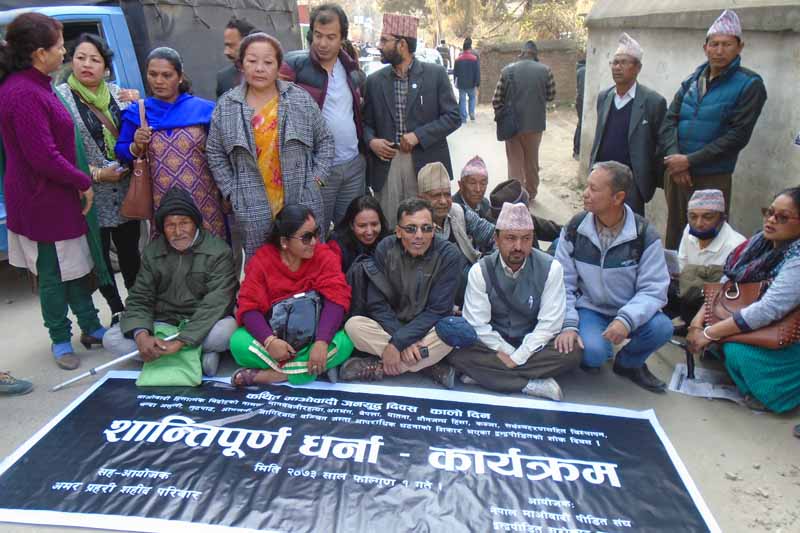Justice eludes conflict victims
Kathmandu, December 3
Conflict-era victims have complained that the two transitional justice mechanisms — Truth and Reconciliation Commission and Commission of Investigation on Enforced Disappeared Persons — have largely been apathetic to their plight.
Instead, they said, the bodies were prolonging their physical and mental agony by adopting lengthy, complicated and non-transparent truth finding procedures. With just three months remaining for their terms to expire, the conflict victims said they had lost their hope for justice from TRC and CIEDP. Some conflict victims said that they had quit their struggle for justice, while others said socio-psycological support alone would have gone a long way to heal their wounds.
The commissions were formed in 2015 with a two-year term and were awarded a one-year extension in February. So to further extend their terms, which expire on February 10, the act needs to be amended through the Parliament.
If the terms of these bodies are not extended, conflict-era cases will be dealt with through the regular justice system.
Members of Conflict Victims Common Platform opined that the government should at least have acknowledged their painful past and offered a public apology. The government could have adopted a social reconciliation strategy to rehabilitate victims such as orphans, widows and rape victims in society.
They suggested that the government could also alleviate the pain of victims through recognition and social honour.
CVCP chair Suman Adhikari said, “The first thing the government should do is to offer hope that justice will be served and the grievances of the victims will be addressed. Conflict victims would think that justice has been done if the perpetrators are punished. Instead, the government has been protecting them. This has added insult to our injury,” Adhikari added.
Legal practitioners opine that justice in the transitional phase should be looked at from a different perspective.
Advocate Raju Prasad Chapagain said, “Transitional justice does not always justice in its strict sense. Socio-psycological support can be more significant sometimes. Just expressing accountability can also give relief to the victims. The government should adopt a more creative approach to resolve this problem.”
There can be two ways in which justice can be provided to the victims — through restorative justice system under which the offenders are punished for their wrong deeds and restorative justice system where justice is based on rehabilitation of offenders through reconciliation with the victims and the community.
The Supreme Court has said that no amnesty or pardon will be granted for persons convicted of gross human rights violations such as extra-judicial killing, enforced disappearance, torture, rape and other acts of sexual violence. It also stated that no reparations will be accepted and victims will not be allowed to withdraw cases.
Former Attorney General Hari Phuyal said expiry of the terms of transitional justice bodies would activate regular justice system for the adjudication of conflict-era cases.
AG Phuyal said, “If the terms of TRC and CIEDP expire in the next three months, around 700 cases of gross human rights violation and around 1,200 FIR will have to be transferred to regular courts.” A total of 60,316 conflict-era cases have been registered at the transitional justice bodies in the last three years.
READ ALSO:






